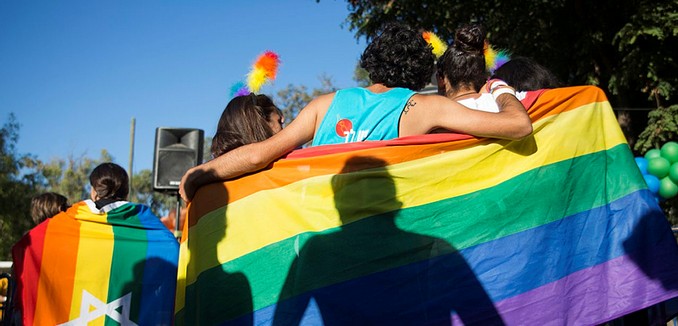The United States and Canada need to do more “to confront lethal homophobia and persecution in the Arab world and Iran,” Benjamin Weinthal, a research fellow at the Foundation for Defense of Democracies, wrote in a commentary for Canada’s National Post on Thursday.
Weinthal advocated a number of steps that North American countries could take to encourage greater LGBT tolerance in the Middle East: funding NGOs that fight anti-gay policies in Muslim-majority countries, imposing sanctions “on individuals and regimes involved in anti-LGBT persecution,” and working to prevent Middle Eastern countries with homophobic policies from serving in leadership positions in UN human rights organizations.
Weinthal drew a contrast between the lives of gay people in Muslim-majority countries and in Israel. He noted that Payyam Feili, a gay poet from Iran, was welcomed in Israel after being tortured during the rule of Iranian President Hassan Rouhani, who is widely perceived to be a moderate. Feili predicted in 2013 that rights would not improve under Rouhani. “Nothing essential has changed,” he said at the time. “The structure is still the same. It’s a play, a comic and ugly performance. They’re relying on the naïveté of people to be able to succeed.”
In contrast, Israeli Prime Minister Benjamin Netanyahu publicly cheered the first openly gay member of his Likud party in the Knesset. “I am happy to accept him in our ranks,” Netanyahu said from the Knesset podium. MK Amir Ohana “has a rich past in security and is the head of the Likud Pride Group. I accept him with appreciation and pride.” When Arab and Iranian parliaments are tolerant enough to similarly accept LGBT lawmakers, Weinthal observed, “there might, just might, be stability and peace in the Middle East.”
Many European governments that support LGBT rights have also unilaterally recognized a Palestinian state, despite the discrimination that LGBT Palestinians face from their government. One example of this, Weinthal noted, was that an LGBT film festival organized by the organization Aswat-Palestinian Gay Women will be held this year in the Israeli city of Haifa—not in Ramallah, the seat of the Palestinian Authority’s government.
For more on Israel’s strides in granting rights to its LGBT citizens and residents, read The Persistent Progress of Israel’s LGBT Community, an article by Corinne Berzon that was published in the April 2015 issue of The Tower Magazine.
[Photo: Sarah Schuman / Flash90 ]




